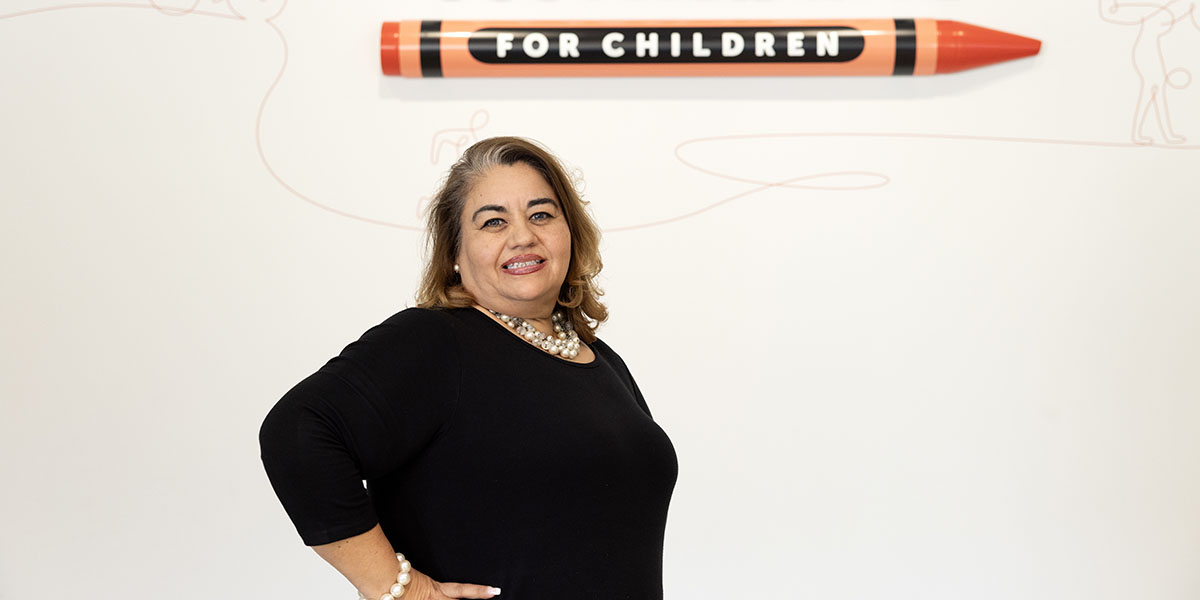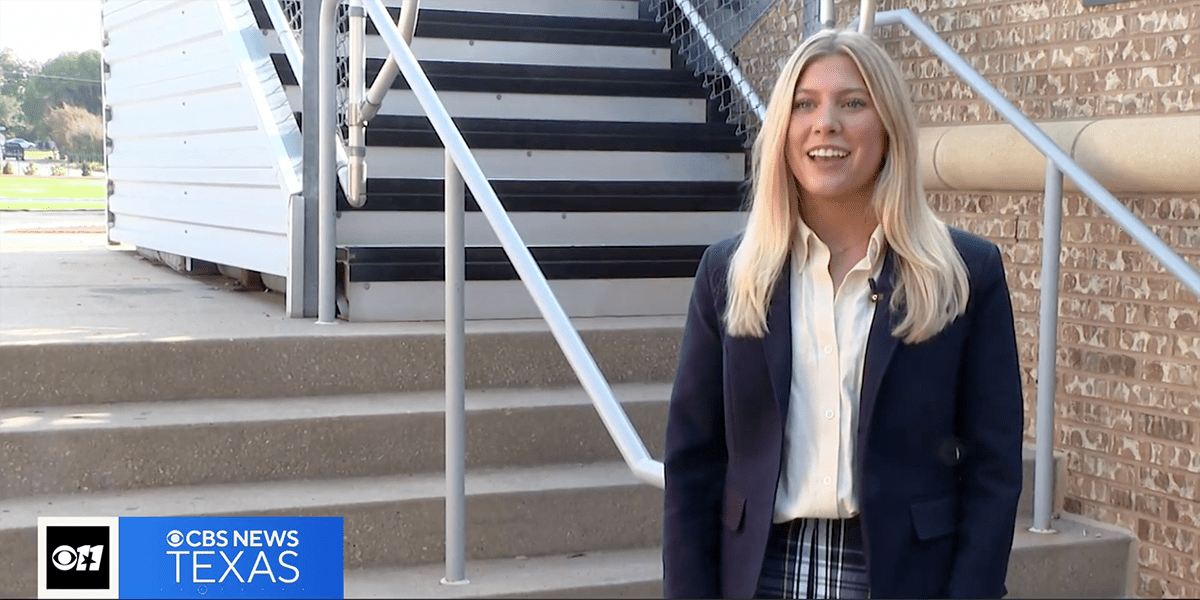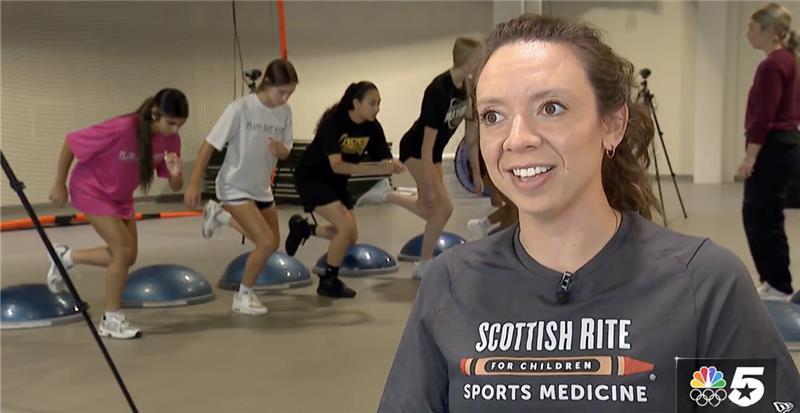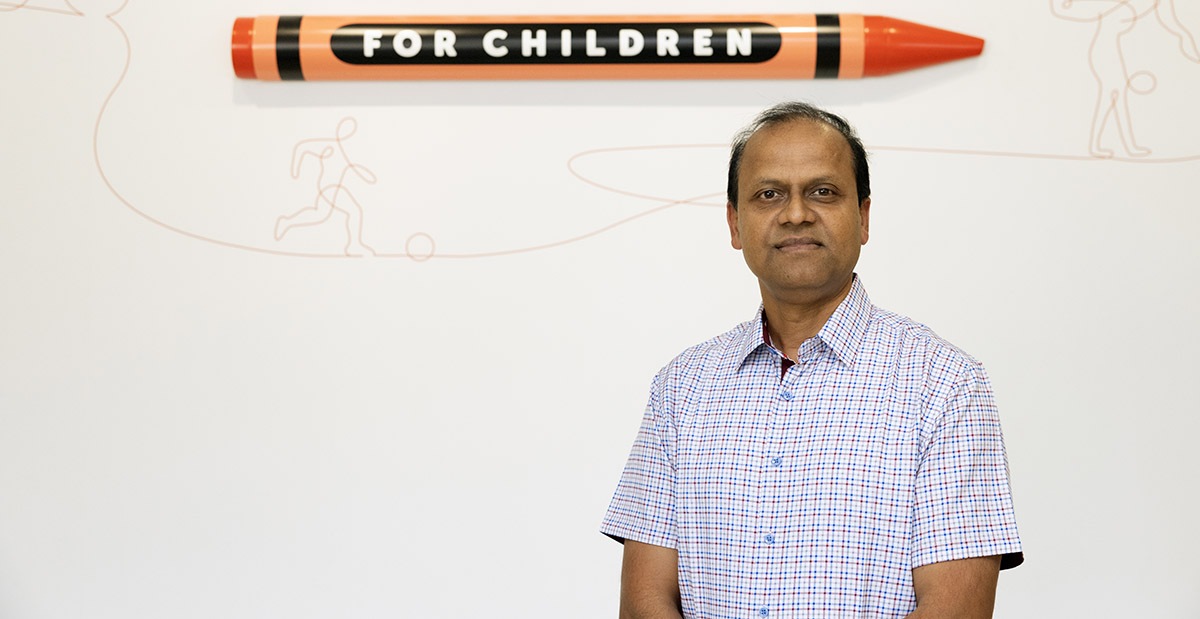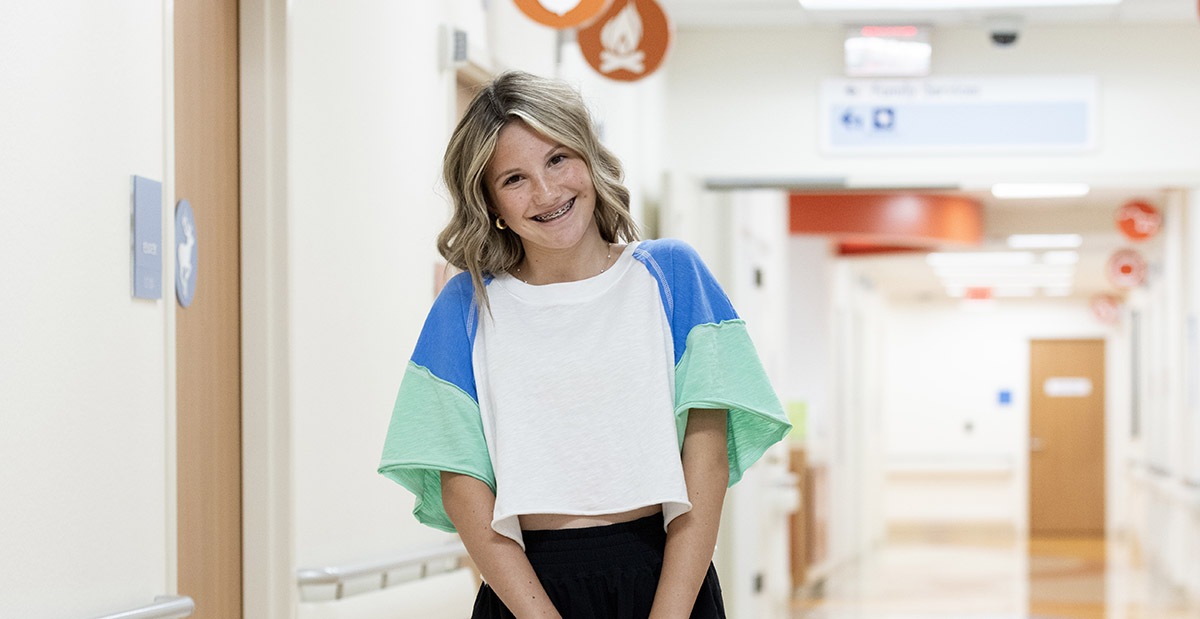by Hayley Hair
Preparing to qualify for the Amateur Athletic Union Junior Olympic Games, the largest national multisport event for youth in the United States, is no small feat. Contenders need intense training and ironclad dedication to be considered among the strongest, fastest, most skilled student athletes competing from around the country.
Seventeen-year-old Kelaiah, of Balch Springs, has definitely put in the work. She trains twice a day nearly every day for the 200-meter, the 400-meter and 4 x 100-meter relay races. “I’m training hard every day and giving it my all every time I go out there,” Kelaiah says. “What I have for that day is what I give, and I try to push more if I know I’m not feeling 100%.”
Unlike the runners she’s competing against, Kelaiah has been mentally and physically working through a delicate balancing act of becoming one of the best while managing juvenile idiopathic arthritis (JIA).
FINDING OUT ALL ABOUT ARTHRITIS
At 15, Kelaiah was playing basketball, volleyball and running, and when she started having swelling, pain and inflammation around her knee, her pediatrician referred her and her mother, Tanisha, to Scottish Rite’s Rheumatology team.
“She had a significantly swollen knee but remained very active,” says Kelaiah’s rheumatologist Katie Stewart, M.D. “Because she’s an athlete, we needed to think about other causes of swelling, more mechanical or injury-related issues.”
Arthritis is an autoimmune condition that causes swelling in one or more joints, and after six weeks of persistent joint swelling, it is classified as one of the chronic types of arthritis, including JIA for those 16 and younger. Arthritis can look like other common pediatric problems, so determining the diagnosis is crucial in taming the inflammation and potential damage caused by the condition.
“She was one that we were not quite sure of the diagnosis at first, and we were grateful to have great radiology input from our team,” Stewart says. “We work with Orthopedics and Sports Medicine, and in Kelaiah’s case, Radiology really helped us confirm the diagnosis.”
Working with other physicians, advanced practice providers, physical and occupational therapists, psychologists, radiologists and many others, Scottish Rite’s Rheumatology team helps treat the whole child while supporting one’s hopes and dreams for an active, healthy life. Services provided include infusion therapy, digital X-ray and advanced imaging, orthoses or braces and lab services.
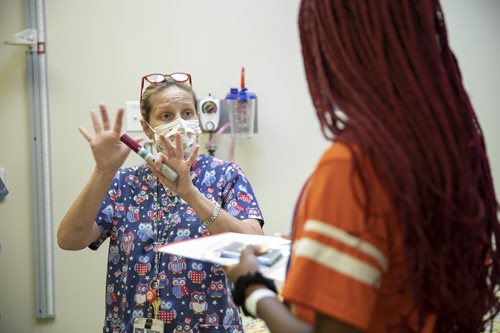
Many parents ask how did this happen. “I try to make it clear that there is nothing that someone did to cause this,” Stewart says. “The short story is that we don’t know how these conditions occur, and hopefully that’s something that science is going to lead us to discover at some point in the future.”
Her mother says she went through a lot of emotions learning about Kelaiah’s condition. “I was really taken aback because I thought, ‘oh, it’s arthritis?’ I thought that was something that you got when you were older,” she says. “As a mom, it was painful to hear because I know how much Kelaiah loves sports and how active she is, and all of her siblings are active in sports. That’s basically our life.”
For Kelaiah, telling her coaches and teammates led to more questions. “They didn’t know that it is for young people, and they didn’t get that it was my immune system attacking my body,” Kelaiah says. “It has nothing to do with my age.”
Kelaiah performs at a high level both athletically and academically, and her natural athletic talent and strong work ethic are driving her to pursue her dream of running NCAA Division I college track. “There’s a lot of competition and skill out there,” Kelaiah says. “People always say running is easy, that you are just running in an oval, but there’s a lot of technique and a lot of skills you need in order to be successful. It takes a lot of mental toughness.”
LIVING WITH JIA
Early intervention for JIA is crucial to avoid lasting effects of the condition. Once there’s a diagnosis, rheumatologists, patients and their families work together to control inflammation and keep flare-ups managed. “Initially it was really bad, and she was in a brace,” Tanisha says. “I was wondering, ‘would she ever be able to run again?’”
Some symptoms of JIA are fatigue, swollen and tender joints, pain and stiffness as well as fever and rashes. “I probably cry more than she knows I do because I wish I could take it away and help her, but I can’t,” Tanisha says. “I always tell her, ‘you’ve had more good days than bad days, and that’s life in general.’ What an opportunity to learn early on about the ups and downs in life, and that it’s all in how you deal with it.”
Stewart has prescribed various medications and injections, also called biologics, along the way to find the best treatment to extinguish the fires in Kelaiah’s body. “I feel very fortunate to live in an age when there are effective treatments for our patients and even more options coming down the pike,” Stewart says.
Getting the appropriate type and dosage of biologics has been working for Kelaiah, and with proper rest, good nutrition and hydration, she’s been able to keep training and advocate for herself out on the track.
“Because track is a demanding sport, a lot of runners come up with excuses trying not to run,”
Kelaiah says. “I honestly try not to use my knee as an excuse. But when it hurts, I’m like, ‘okay Kelaiah, you don’t want to make it worse,’ so I have to step up and tell my coach my knee is hurting,” she says. “That’s hard for me because I don’t like feeling that something is stopping me from being what I want to be.”
Overexertion or overtraining can exacerbate the condition. “A major issue that we see with our younger patients is that they push themselves past the point of comfort, not wanting to disappoint a coach or trainer and not knowing what their limits are,” Stewart says. “Finding your limits is going to help someone with arthritis gain more independence and to really listen to their body.”
SPRINTING INTO A BRIGHT FUTURE
Looking forward to upcoming events, Kelaiah continues to work hard each day to move toward her goals. “She’s had a really good year,” Tanisha says. “It’s just trial and error for us now.”
Stewart and the team at Scottish Rite continue monitoring her condition and providing support. “When we got to Scottish Rite, we really felt like they cared about us,” Tanisha says. “The care that you get there is just so wonderful. They let us talk about her accomplishments, and they want to know how she is doing.”
Those accomplishments are pretty impressive. She was selected by the Texas Girls Coaches Association to represent class 5A-6A schools as a member of the Texas All-Star Team. Her high school track team won district, area, regionals and state in the women’s 4 x 200 and the 4 x 400 relays and placed third in the 4 x 100 relay. Kelaiah competed at the Junior Olympics in 2021 in the 4 x 400 relay, with her team placing fourth.
Kelaiah had a strong showing at the most recent regional meet, a qualifier for the 2022 Junior Olympics in North Carolina in August. Her performances have successfully qualified her for the 4 x 100 and the 4 x 400 relays, as well as the 200- and 400-meter individual races, where she also set personal bests.
Stewart continues to be a big fan of Kelaiah’s. “She is a resilient young lady,” Stewart says. “She does not let anything stop her. I think just the fact that she’s pushed through all of her obstacles says so much about her.”
Kelaiah’s future is bright, and she feels like she’s getting the care she needs at Scottish Rite. “They’re going to get you right,” Kelaiah says. “They’re going to help you, and they’re going to do their best to help you with whatever you are going through,” she says. “It’s a very good support team. You are going to be okay.”
Read the full issue.




